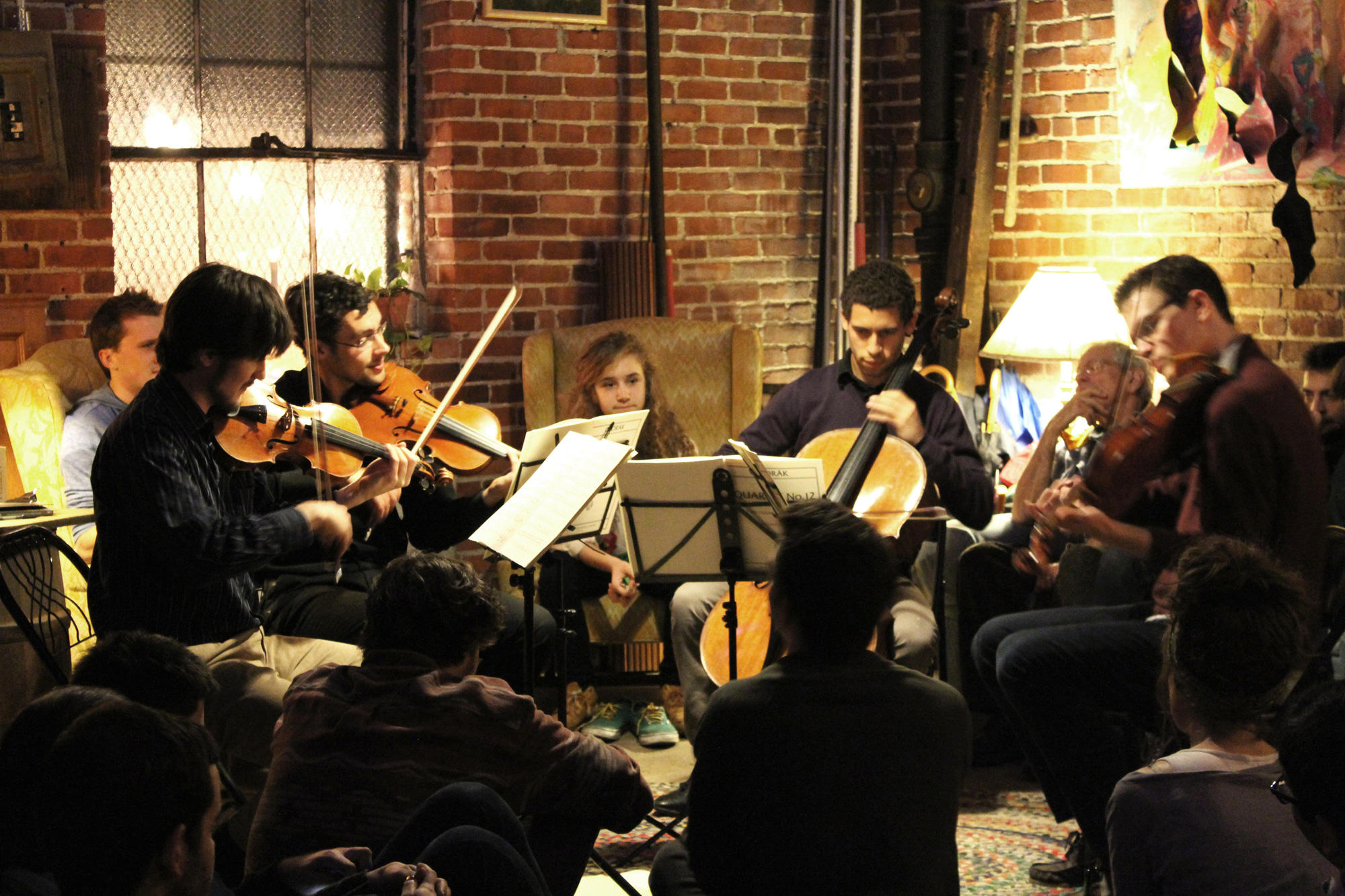Sam Bodkin ’12CC has always been a music lover, though when he first arrived on campus, his tastes tended more toward the Beatles than Bach. Like most teens, he thought classical music was irrelevant — something enjoyed by tuxedo-clad aficionados in stuffy concert halls. But during his freshman year at Columbia, Bodkin happened to live next door to a cellist.
“He played me Beethoven’s op. 133, the Große Fuge, which is undoubtedly the composer’s most modernist, experimental piece. It was so at odds with everything I thought I knew about classical music,” Bodkin says.
Bodkin became obsessed. He listened to the fugue up to fifteen times a day, then went to the library and downloaded every piece of classical music he could find. By the end of the year, he was the only non-musician member of the Columbia Chamber Players and had become an evangelist.
“It had filled my interior world with such depth,” Bodkin says. “I knew I was going to devote my life to sharing this kind of music with other people.”
A few summers later, Bodkin was interning for the Boston Symphony Orchestra. At night, he would gather with several musician friends and watch them play. The mood was festive and casual, but at the center was a pure appreciation for the art. Bodkin started to wonder if this experience was something he could replicate.
The result was Groupmuse, a company that Bodkin founded in January 2013. Groupmuse matches party hosts with classical musicians. The service is free, and anyone can sign up. Hosts register on the company’s site, schedule a concert in their home, and invite a minimum of ten guests. Two-thirds of the spots can be reserved for their friends. The rest are offered to the public, who can find tickets online. All guests are requested to donate at least ten dollars, which goes directly to the musicians.
Bodkin says that Groupmuse parties are not what most people picture when they think of a classical performance. There’s eating and drinking and socializing before and after the music. The audience often ends up sitting on the floor, and they are encouraged to react to the music, and to applaud between movements.
“I think the entire reason that classical music has been dying out is that the younger generation is intimidated by the cultural implications of the concert. When you don’t have much money, the last thing you want to do is spend it on a ticket where you’re told how to behave: when to clap, how to dress. It’s not that people don’t appreciate the music,” he says. “They don’t like the culture that comes with the music.”
In the last three years, Groupmuse has hosted over one thousand parties and has been featured on NPR and in Time magazine and the Wall Street Journal. While most of the events have taken place in New York, Boston, San Francisco, and Seattle, Groupmuse plans to expand to more cities. A recent Kickstarter campaign, which raised more than $130,000, will help fund that effort.
“People have been worried about the future of classical music, but in a world so desperately in need of beauty, classical music is certainly in no risk of dying,” says Bodkin. “Classical music is one of our deepest and most profound forms of expression ... it just needs to get out more.”



